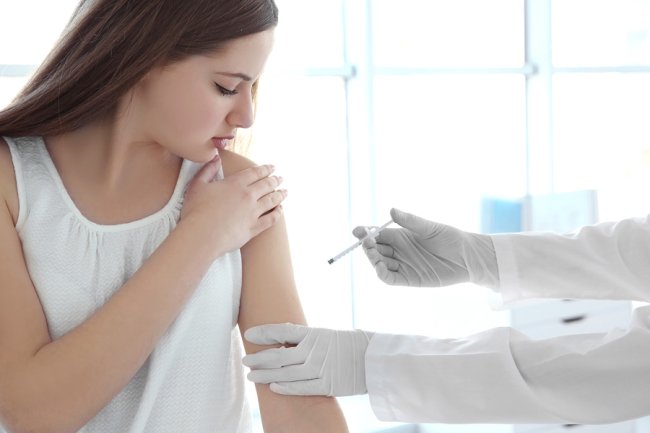HPV Immunizations and Why You Should Consider Them for Your Children

Vaccines are always a hot button topic, especially when you pair vaccines with sexually transmitted infections. It’s hard to imagine your preteen needing protection from a sexually transmitted infection like human papillomavirus. After all, why vaccinate when the virus can be prevented by abstinence? But the truth of the matter is that HPV can be contracted through other means than intercourse. At Women’s Healthcare Associates, our doctors want you to have all of the information you need about the HPV immunization so you can make an informed decision about whether or not to vaccinate your children.
What is HPV?
Human papillomavirus is the most common sexually transmitted virus in the U.S. It affects both males and females and there are over 40 different strains, many of which do not cause any symptoms and go away on their own. But some strains of HPV can cause cervical cancer in women, as well as less common types of cancer in both men and women, genital warts, and warts in the upper respiratory tract. HPV is so common that over 50 % of sexually active men and women will be infected at some time in their lives. There is no treatment for HPV infection.
What Does the Vaccine Protect Against?
The HPV immunization is an inactive vaccine that protects preteens, teens, and young adults from the four major types of HPV, two of which cause about 70% of cervical cancer and two of which cause about 90% of genital warts. The vaccine is usually given at age 11 or 12 and is long-lasting.
Reasons to Consider Having Your Children Vaccinated
HPV Can Be Contracted Without Having Sex
Unlike some STDs, HPV can be transmitted via genital-to-genital or hand-to-genital contact, whether it be mutual adolescent experimentation or undesired contact. Intercourse is not necessary. In fact, a 2012 study found that 11.65 of females who had never had sexual intercourse were positive for at least one strain of HPV.
Babies Can Get HPV From Their Mothers
Women who are positive for HPV can pass it on to their children during the birthing process. Babies can also contract the disease from hand-to-genital contact during diaper changes.
HPV Warts Can Grow Almost Anywhere
HPV warts can definitely affect the genitals, but they are not restricted to that area. They can also grow on the hands, feet, throat, airway, and lungs.
The HPV Vaccine Does Not Just Protect Against Cervical Cancer
Though mainly associated with cervical cancer, HPV can actually cause many types of cancer that affect both men and women. Cancers associated with HPV also include the penis, vagina, anus, throat, and lung. The HPV vaccine protects against the HPV strains most likely to cause cancer.
Fortunately, most HPV strains clear up on their own, but they often have no visible signs or symptoms and there is no way to predict who will or won’t clear the virus. Why take a chance with your child’s future?
If you would like to find out more about the HPV immunization, contact the professional team at Women’s Healthcare Associates today!
Please Read:
- - Effective 9/15/2022, Masks are highly encouraged, but not mandatory.
- - If you are experiencing any flu/cold/COVID like symptoms, you will be required to wear a mask.
- - At this time, we are only allowing ONE ADULT to attend the appointment with the patient. We are not allowing anyone under the age of 18
*Please note, if you bring more than one visitor or if you bring a visitor under the age of 18, they may be asked to wait outside of the waiting room or you may be asked to reschedule your appointment*

